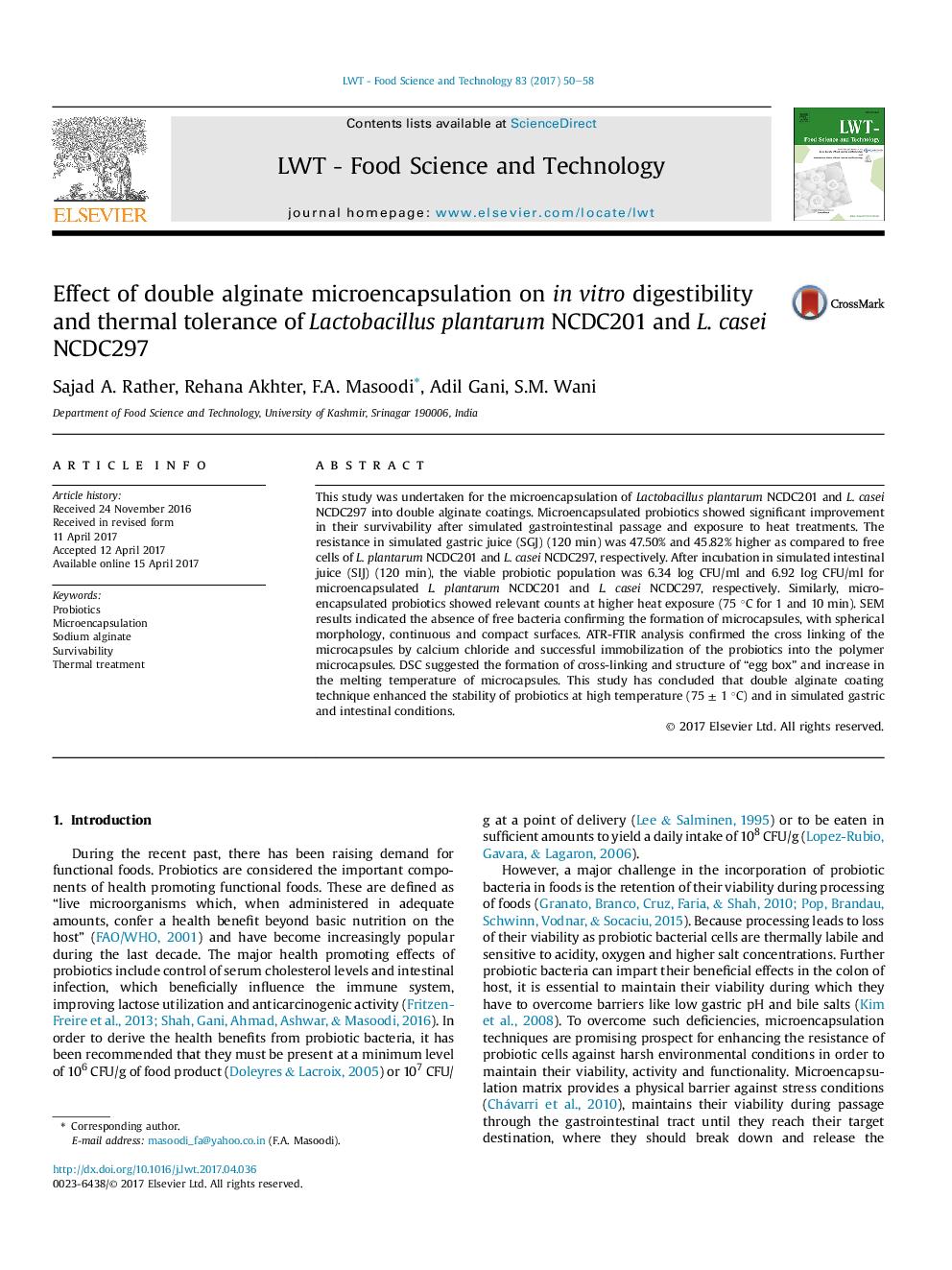| کد مقاله | کد نشریه | سال انتشار | مقاله انگلیسی | نسخه تمام متن |
|---|---|---|---|---|
| 5769073 | 1628515 | 2017 | 9 صفحه PDF | دانلود رایگان |

- This study revealed that double alginate coating increase microencapsulated bead strength.
- Thus offers an effective means of delivery to the colon and increase their thermo tolerance.
- FTIR and SEM confirmed the successful immobilization of the probiotics into the polymer beads.
- DSC suggested the formation of “egg box” structure and increase in melting temperature of the microcapsules.
This study was undertaken for the microencapsulation of Lactobacillus plantarum NCDC201 and L. casei NCDC297 into double alginate coatings. Microencapsulated probiotics showed significant improvement in their survivability after simulated gastrointestinal passage and exposure to heat treatments. The resistance in simulated gastric juice (SGJ) (120 min) was 47.50% and 45.82% higher as compared to free cells of L. plantarum NCDC201 and L. casei NCDC297, respectively. After incubation in simulated intestinal juice (SIJ) (120 min), the viable probiotic population was 6.34 log CFU/ml and 6.92 log CFU/ml for microencapsulated L. plantarum NCDC201 and L. casei NCDC297, respectively. Similarly, microencapsulated probiotics showed relevant counts at higher heat exposure (75 °C for 1 and 10 min). SEM results indicated the absence of free bacteria confirming the formation of microcapsules, with spherical morphology, continuous and compact surfaces. ATR-FTIR analysis confirmed the cross linking of the microcapsules by calcium chloride and successful immobilization of the probiotics into the polymer microcapsules. DSC suggested the formation of cross-linking and structure of “egg box” and increase in the melting temperature of microcapsules. This study has concluded that double alginate coating technique enhanced the stability of probiotics at high temperature (75 ± 1 °C) and in simulated gastric and intestinal conditions.
Journal: LWT - Food Science and Technology - Volume 83, 15 September 2017, Pages 50-58